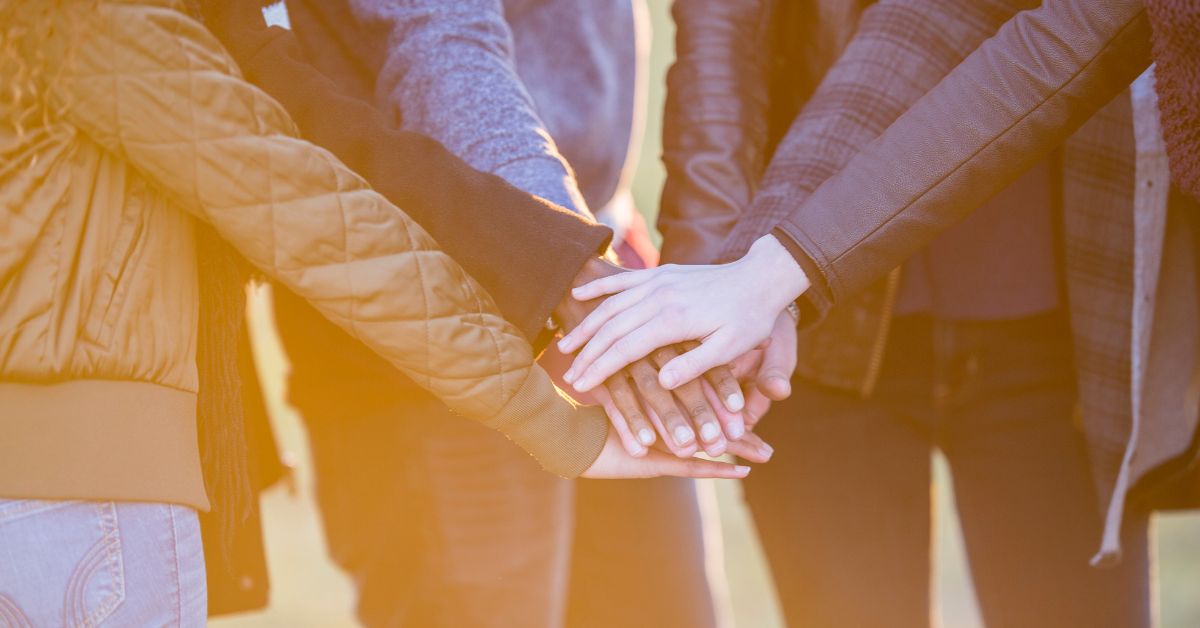Friendships are essential to our lives, especially for someone in addiction recovery. Meeting new people during this time can be more complicated because it’s filled with emotions, trust issues, and tension.
However, good friendships in recovery have many benefits – they help people get through difficult times and maintain sobriety. If your loved one is trying to have new friends or wants to nurture their current relationships, here you’ll find practical tips to balance their friendships with their recovery needs.
Why is Friendship Important in Recovery?
During addiction recovery, friends play a crucial role in the journey, not just as companions but also as anchors that keep individuals steady. Rebuilding relationships or having a new social group can help in this aspect during the early stages of recovery.
They can offer social support by understanding your loved one’s challenges, motivating them, and showing affection. Of course, it doesn’t go one way only. In a friendship, the support must be mutual and sincere, so your loved one is also responsible for being a supportive friend.
The Role of Friendships in Recovery
While professional help and family support do their own part in healing, the presence of a sober support network can be of great help.
Consider these points:
- Reduction of stress: Healthy interactions with friends can help reduce stress levels, leading to a relaxed mood and decreasing the likelihood of relapse.
- Offer support: Having friends can be a great comfort when things are tough. They can be a good support network, offering reassurance and emotional comfort.
- Boost happiness: Friendships foster happiness by spending time together, laughing in the good times, or feeling understood when it is not a good day.
- Motivation to stay sober: Friends can provide a motivational boost to help someone begin and continue their journey toward sobriety.
- Keep you grounded: True friends serve as reminders of the progress made and goals yet to be achieved, especially in challenging moments.
Making sober friends during recovery can make a huge difference. It’s not just about having someone to talk to but having those unique connections that provide the strength necessary to keep going.
It’s truly amazing how sober friends can help your loved one become more resilient, incorporate strategies for relapse prevention, and ultimately lead them to a successful recovery.
Making New Friends in Recovery – A New Aspect to Rehab

Rehabilitation primarily focuses on medical and psychological treatments for substance use disorder. However, it also offers opportunities for your loved one to interact with individuals who went through the same.
Navigating the Recovery Process
The journey to sobriety is unique to each person, but there are common struggles on the road. During therapy sessions, group activities, and meals in recovery, your loved one is surrounded by others who understand their challenges.
Here are a few ways these friendships can form:
- Shared experience: Sharing experiences can help develop accountability in recovery and create a strong bond.
- Emotional support: When someone has gone through the same as your loved one, they can understand and offer genuine support.
- Promoting empathy: Strong friendships often foster emotionally charged conversations, encouraging your loved one to be more understanding.
Fostering Relationships for a Strong Recovery
For your loved one in recovery, having sober friendships can help to avoid setbacks. Friends can serve as:
- Lifelines: Friends can offer individuals the help they need to stay afloat and avoid falling back into old habits.
- Monitors: Your loved one’s friends have a unique perspective on their recovery journey and can often recognize when they’re struggling, providing immediate support.
- Accountability buddies: When someone keeps track of your loved one’s progress, it makes them feel responsible and less likely to fall back into old habits.
It can be hard for an individual to recover on their own. However, practicing forgiveness in addiction recovery, having a good relationship with others, and living in a resilient community can make a difference. That’s why it is important to reach out and lean on these resources to avoid returning to old friendships.
SEE: Find out why your boundaries keep getting crossed (and how to reinforce them)
Meeting New Sober Friends
Moving from a controlled rehabilitation environment to the outside world can be overwhelming. However, there are opportunities for new beginnings, and one of those opportunities is to make new friendships with sober individuals.
Great Places To Meet New People
After a treatment program, your loved one can feel intimidated when returning to an everyday life without addiction. Here are some ways they can navigate this phase successfully:
- Engage in new hobbies: Hobbies and passions bring joy to your loved one and can connect them with people with the same interests.
- Do volunteer work: Assisting local nonprofits or community events reinforces self-worth and encourages interaction with diverse people.
Navigating Challenges when Making New Friends
Building a social life in recovery is a delicate process. It requires that others understand sobriety is crucial for your loved one. Strong connections require:
- Openness: If your loved one shares their experience with others, it’ll help them understand and appreciate the dedication to staying sober.
- Discernment: It’s vital to differentiate between relationships prioritizing substance-free activities and those that may trigger a relapse.
Making new friends after a recovery program is more than finding something to do on the weekends. It’s about finding people who support the journey toward a healthy and sober life.
Strong Friendships To Conquer Addiction Treatment

Recovery can be an uphill battle, and it’s not something your loved one can achieve alone. That’s why building strong friendships within and outside rehab is crucial.
These friendships are more than just companionship. They provide a powerful shield that helps individuals to combat substance abuse. Cultivating healthy friendships is not just a part of the process; it’s a vital component of achieving sobriety.
Frequently Asked Questions About Friendships in Recovery
How do I find friends in recovery?
If you’re looking to make friends in recovery, you may need to invest some time and be willing to step out of your comfort zone. One way to start is by joining support groups or activities that are designed for people in recovery. These places typically have people who have been through similar experiences and can relate to your journey. They could be an excellent way to build meaningful friendships.
What are the three types of friendships?
There are three types of friendships: utility friendships, pleasure friendships, and good or character friendships. Utility friendships are based on mutual benefits and usually end when the benefit ends. Pleasure friendships revolve around shared enjoyable activities. Good or character friendships prioritize genuine affection and mutual respect.
NEW: How to make the shift from "Mom Code" to prioritizing your own well-being
What are ways to help a friend in recovery?
When helping a friend recover, it’s essential to be understanding, empathetic, and non-judgmental. Good communication is vital, so listen to their experiences and show up for them when they need you. Remind them of their strength and encourage them along the way. It’s also essential to respect their space when they need it.
How do you restart a lost friendship?
When trying to restart a lost friendship, reach out to the person and express your wish to reconnect honestly. If you made mistakes in the past, admit them, as showing humility can help mend the relationship. However, respecting the other person’s decision is essential if they choose not to reestablish the friendship. Remember that a renewed relationship requires effort, and both parties must be willing to work towards it.
